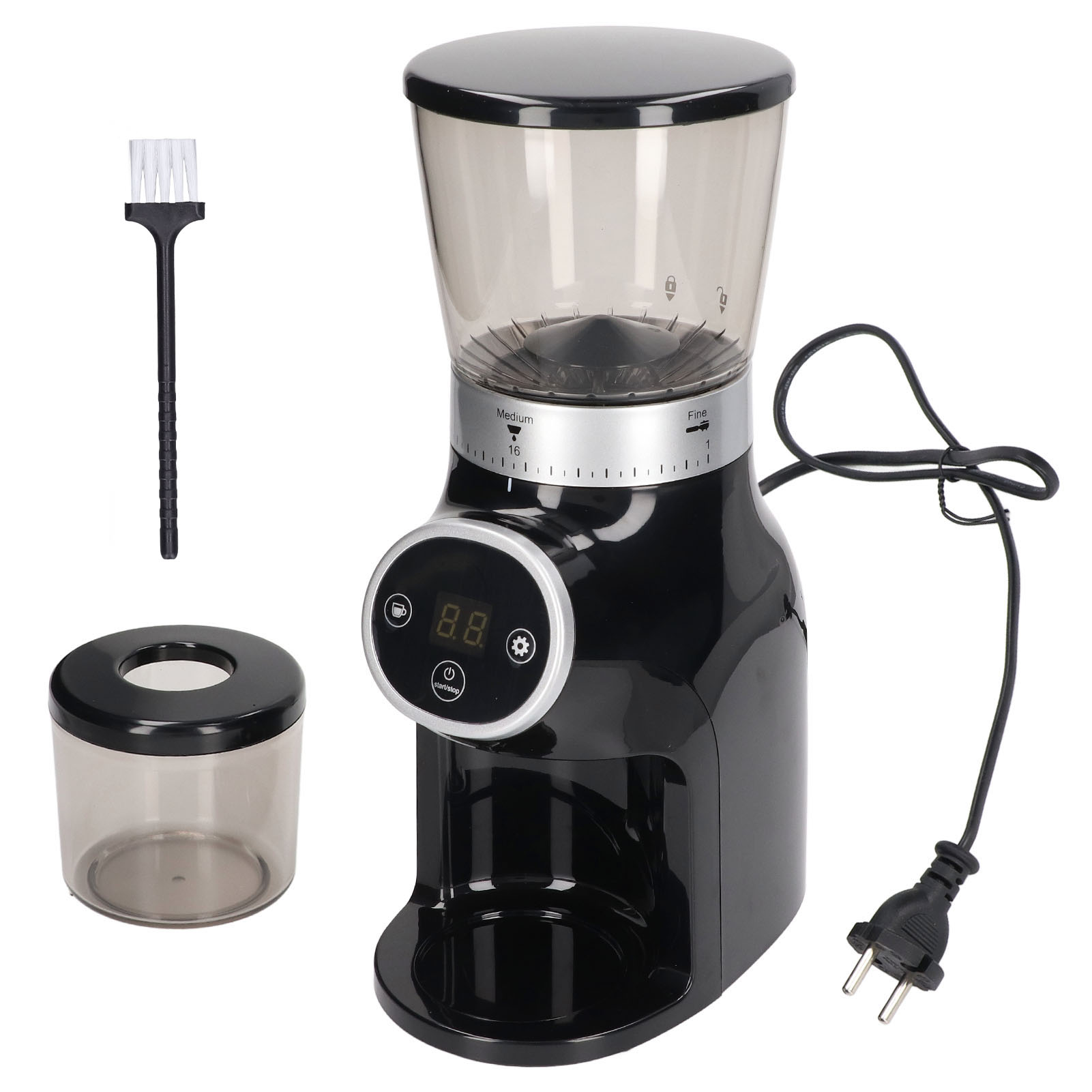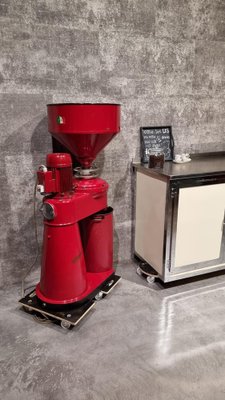Find the Great Discounts on Industrial Coffee Grinder Brands Today
Find the Great Discounts on Industrial Coffee Grinder Brands Today
Blog Article
Just How to Pick the Perfect Industrial Coffee Grinder for Your Service
Picking the excellent industrial coffee mill for your business is a diverse choice that calls for cautious factor to consider of numerous critical elements. Additionally, recognizing the different kinds of mills offered can dramatically affect your operational performance.
Assess Your Grinding Demands
When selecting an industrial coffee mill, one should first analyze their grinding requirements to ensure ideal performance and uniformity. This first examination involves comprehending the quantity of coffee to be processed daily, as well as the preferred work dimension for various brewing techniques. A high-capacity grinder may be essential for services offering large amounts of coffee, while smaller sized operations might locate a more compact version adequate.
Moreover, it is necessary to consider the kinds of coffee beans being used, as various beans might require details grinding methods to achieve the most effective flavor account. Oily beans might require a grinder developed to deal with such features without clumping or overheating.
Another important variable is the required work uniformity. Specialty coffee services typically demand precise work dimensions to boost extraction and taste, making it important to choose a grinder that can provide uniform results. Finally, evaluating the offered space and electrical needs will help in selecting a mill that fits effortlessly right into your operational process. By completely evaluating these variables, organizations can make informed decisions that straighten with their coffee grinding demands, inevitably leading to a premium product and completely satisfied customers.
Understand Grinder Kind
Recognizing the various sorts of industrial coffee grinders is essential for making a notified selection that meets particular functional requirements. There are primarily 2 groups of grinders: blade grinders and burr grinders.
Blade mills make use of spinning blades to slice the coffee beans, resulting in an inconsistent work dimension - Industrial Coffee Grinder. While they might be much more economical, they are commonly not suitable for industrial applications where accuracy is necessary
On the various other hand, burr mills provide a more uniform work by crushing the beans in between two surface areas. They can be further categorized into flat burr and cone-shaped burr grinders. Apartment burr grinders use a regular work dimension and are commonly preferred for espresso preparation, while conelike burr mills are versatile and can deal with a range of mixture methods, from espresso to French press.
When picking a mill, think about the details demands of your business, consisting of preferred work uniformity, manufacturing quantity, and the kinds of coffee drinks you intend to offer - Industrial Coffee Grinder. Each mill kind has its limitations and benefits, so understanding these nuances allows informed decision-making that aligns with operational objectives
Evaluate Work Dimension Consistency
Accomplishing work size uniformity is necessary for creating high-quality coffee, as variations in fragment size can significantly affect removal and flavor. When picking an industrial coffee grinder, it is vital to review exactly how well the machine keeps uniformity in grind size throughout different batches. Irregular grind sizes can bring about uneven removal, leading to a mug that may taste weak or extremely bitter.
To analyze work dimension uniformity, think about mills with functions such as adjustable work settings and top notch burrs. Burr mills, specifically, succeed in producing consistent bit dimensions contrasted to blade mills. The product and shape of the burrs play a vital duty, with stainless-steel and ceramic alternatives offering durability and precision.

Consider Production Capability
In the fast-paced world of coffee manufacturing, considering manufacturing capability is vital for businesses aiming to fulfill demand without giving up quality. The production capacity of a commercial coffee grinder directly influences a business's capacity to accomplish orders effectively, manage inventory, and reply to changing market trends.
When assessing production ability, it is vital to evaluate the mill's result rate, usually measured in pounds per hour. This dimension needs to straighten with your business's forecasted sales quantity and development targets. For example, a café with a high turn over might need a mill that can process numerous hundred pounds daily, while a smaller procedure might be you could look here enough with a lower ability model.
Additionally, take into consideration the sort of coffee being processed. Different beans and blends might impact grinding rate and performance, necessitating a mill capable of taking care of varied production needs. It's also worth factoring in the grinder's ability to maintain consistent high quality under high output conditions, as any type of fluctuations can affect the end product.
Inevitably, picking a mill that matches your organization's manufacturing capability will certainly ensure you continue to be affordable and receptive to client expectations.

Spending Plan and Maintenance Elements
When evaluating the right commercial coffee mill, budget and maintenance variables play a considerable duty in the general decision-making process. A first investment in a top quality grinder can yield lasting advantages, yet it's necessary to establish a clear budget that aligns with your company's functional needs. Think about both the acquisition rate and potential operational expenses, such as power intake and substitute parts.
Industrial coffee mills need normal upkeep to guarantee ideal performance and longevity. Review the manufacturer's suggestions for upkeep, consisting of cleaning routines and components replacement, as these will certainly affect long-lasting functional expenses.

Spending in a grinder that is sturdy yet very easy to keep can save cash over time. While lower-priced alternatives might be tempting, they may incur higher maintenance prices and decreased performance. Ultimately, balancing preliminary costs with long-term maintenance and functional effectiveness will certainly lead you to the very best choice for your service's coffee grinding requirements.
Verdict
Selecting the perfect commercial coffee grinder demands a comprehensive analysis of grinding demands, grinder kinds, grind dimension consistency, production capacity, and financial factors to consider. An appropriate mill not just enhances the quality of the coffee created but additionally adds to the total success and productivity of the enterprise.
Specialized coffee companies often require accurate grind dimensions to enhance extraction and flavor, making it crucial to pick a grinder that can deliver uniform outcomes. Flat burr mills provide a consistent grind size and are generally favored for coffee prep work, while conelike burr grinders are flexible and can manage a variety of mixture approaches, from coffee to French press.
When picking a commercial coffee grinder, it is important to evaluate how well the device keeps uniformity in work size throughout different batches. Burr mills, in specific, excel in generating uniform bit dimensions from this source contrasted to blade mills.Choosing the ideal industrial coffee grinder demands a complete assessment of grinding requirements, grinder types, grind size uniformity, production ability, and monetary factors to consider.
Report this page